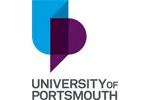We're moving! This site will be relocating to goingto.university in 2026. Please update your bookmarks to the new address.


the United Kingdom
University of Portsmouth| The award | How you will study | Study duration | Course start | Domestic course fees | International course fees |
|---|---|---|---|---|---|
| BSc (Hons) | Full-time | 4 years | September | - | - |
Overview
If you see yourself turning your passion for sport and exercise into an exciting global career, this BSc (Hons) Sport, Health, and Exercise Sciences dual degree course is for you.
Based in Portsmouth and Perth, Western Australia, you'll explore areas such as sports psychology, biomechanics and exercise physiology, and develop skills to help everyone – from elite athletes looking to set new records to those who play sports for fun – get the most out of exercise.
You'll experience another culture, get access to further expertise and high-tech equipment, and gain an international perspective that will help set you apart when you embark on your career.
Course highlights
Be able to get specialist qualifications that match your career aspirations in areas such as first aid, coaching and gym instruction
Put what you learn into practice using links to local sports and healthcare providers
Learn from expert staff who are actively engaged in research projects that inform the future of sport and exercise science
Endorsed by
This course is endorsed by the Chartered Association of Sport and Exercise Sciences (CASES), the professional body for sport and exercise sciences in the UK. You can read about the benefits of choosing a CASES-endorsed degree course on the CASES website.
Careers and opportunities
Sport, health and exercise science focuses on the scientific principles behind exercise performance. It combines physiology, psychology, biomechanics and nutrition management skills to examine the relationship between exercise and the human body, revolutionising the way sportspeople train and condition themselves.
A report by The Physiological Society found that over the course of their careers, sport and exercise science graduates earn on average £667,000 more than their non-graduate peers. What's more, the experience you gain during your year at Edith Cowan University in Australia will be invaluable to your employment prospects.
Gain a global perspective on sport and exercise science
As part of this thriving industry, you'll have the skills to develop and rehabilitate athletes of all ages, or take a non-scientific career route such as teaching, sports journalism, sports marketing or advertising.
You could also study sport, health and exercise science further at postgraduate level, such as with our Applied Sport and Exercise Performance MSc.
What areas can you work in with a sport, health and exercise sciences degree?
When you graduate, you could work in areas such as:
Potential roles
Roles you could take on include:
Ongoing careers support
To give you the best chance of securing the ideal job when you graduate, our Careers and Employability Service can help you find relevant work experience during your course.
We'll work with you to identify placements, internships, voluntary roles and freelancing opportunities that will complement your studies and allow you to use the skills you've learnt.
We'll also be available to help, advise and support you for up to 5 years as you advance in your career.
Sport, health and exercise science work experience
This course includes a work-based learning core module. You'll complete 20 hours of work experience across a range of industry sectors related to sport, health and exercise science, with direct mentorship from academic members of staff.
You'll get to see a range of career journey presentations from alumni and subject experts and we'll use these links to encourage work based activities across the sectors of sport, health and exercise science.
https://www.port.ac.uk/study/undergraduate/undergraduate-fees-and-student-finance
120-128 points to include a minimum of 2 A levels, or equivalent, with 32 points from a Science subject (Biology, Chemistry, Mathematics, PE, Physics, Psychology or Sports Science and the Active Leisure Industry or Sports Studies).
English language proficiency at a minimum of IELTS band 6.0 with no component score below 5.5.
Below are some suggested courses at other providers that you may also be interested in:
Assessment, Measurement and Evaluation Master Degree
Faculty of Educational Sciences, University of Oslo
Find out moreConsider a Foundation or Pathway course at University of Portsmouth to prepare for your chosen course:
If you do not meet the entry requirements for this course then consider one of these courses from another institution:
There are 529 other courses listed from University of Portsmouth. A selection of these are displayed below:
Join the StudyLink email list and never miss a chance to turn your study abroad dreams into reality!

Find out more about studying in the United Kingdom